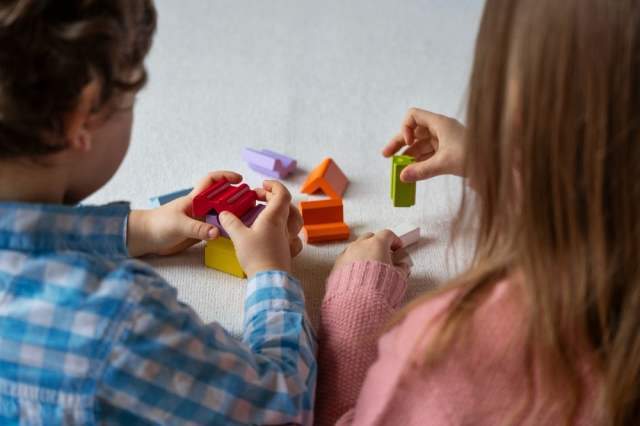When a toddler enters foster care, they are experiencing a major disruption and likely trauma. As foster carers, one of our most important jobs is to help build a secure attachment with the toddler, so they can feel safe, comforted, and able to explore their environment. Play is one of the most powerful tools we have for making these important connections. Entering into a toddler's world through play builds trust and rapport during a difficult transition.
The Power of Play
Play comes naturally to toddlers. It is how they learn, express themselves, work through emotions, and make sense of the world. Whether you are long term fostering or short-term fostering, entering into a toddler's world through play shows that we are interested in them and want to get to know them. Simple activities like rolling a ball back and forth, stacking blocks together, looking at books, or singing songs capture a toddler's attention and joy. When we follow the toddler's lead during play, we show respect for their needs and abilities.
Play also helps toddlers open up socially and emotionally. Creative pretend play gives them a safe space to work through confusing or scary events. As foster carers, we can provide empathy and encouragement as difficult stories unfold through dolls, stuffed animals or role play. Shared laughter and silliness during play releases feel-good endorphins that build attachment.
Tips for Playing with Foster Toddlers
Here are some things to consider when playing with toddlers:
- Get on the floor: Sitting with a toddler at their level shows you are ready to enter their world. Ignore phones and other distractions.
- Let them lead: Follow their interests and don't over-direct. Be responsive in moving play forward.
- Narrate play: Put words to their actions, pretend play, and emotions. This builds language skills.
- Encourage creativity: Provide open-ended toys like blocks, dolls, balls, music, art supplies. See where their imagination takes them.
- Avoid timeouts: Disruptive behaviours during play are cues that something is wrong. Pause play briefly, then redirect.
- Playfulness eases transitions: Make everyday tasks like getting dressed, eating, or bedtime playful with songs, silly noises or tickles.
- Repeat fun activities: Returning to favoured games provides comfort through consistency.
The Lasting Impacts
The connections we build through play in those early toddler days have long-term impacts. Play is the toddler's “work” and their way of figuring out the world and where they fit in it. When foster carers make play a priority and engage wholeheartedly with toddlers, they feel seen, valued, and able to express themselves. This provides a foundation for emotional, social, and developmental gains that will serve them throughout childhood and beyond.
All toddlers deserve caregivers who cherish play. When foster carers enter into a toddler's world with delight, curiosity and compassion, they build the meaningful relationships essential to the toddler's healing and growth. Playful engagement with foster toddlers, no matter how brief, can have profound and lasting impacts. By tuning into what brings these special children joy, we nurture their hearts, minds and spirits.






